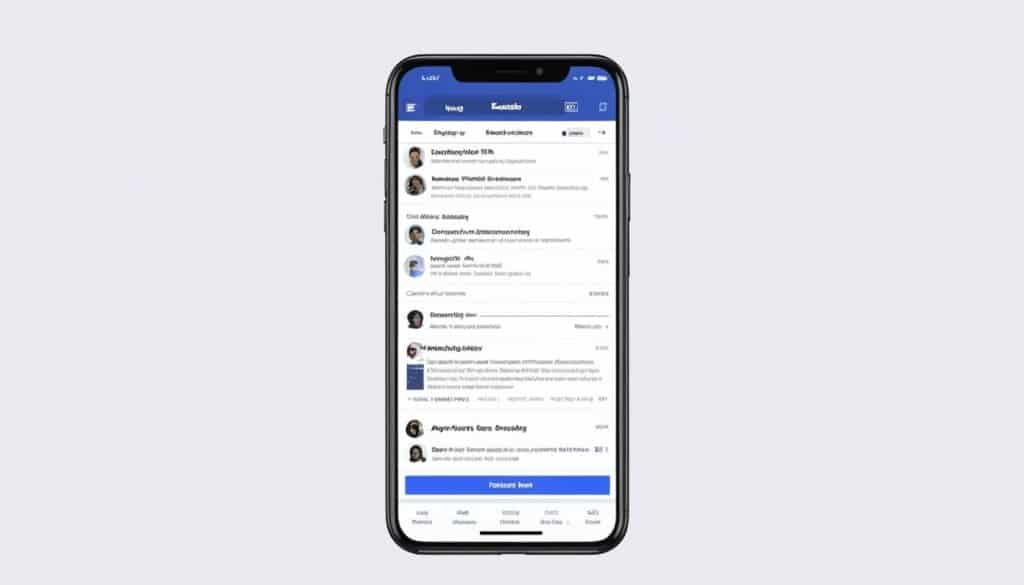Table of Contents
Desperate for data on its competitors, Facebook has been secretly paying people, including teenagers, to install a VPN app called “Facebook Research” as part of their Project Atlas. This app allows Facebook to monitor and collect all phone and web activity of the user, similar to their previous app Onavo Protect. The app was distributed through beta testing services and users were compensated for their participation. This program is in violation of Apple’s policies and has raised concerns about privacy and data collection.
Key Takeaways
- Facebook’s Project Atlas pays teenagers to install a VPN app called “Facebook Research”.
- The app allows Facebook to collect all phone and web activity of the user.
- This program is in violation of Apple’s policies.
- Privacy and data collection concerns have been raised.
- Facebook’s desperate attempt to gather data on competitors has sparked controversy.
The Controversy Surrounding Facebook’s Data Collection
Facebook’s Research program has sparked significant controversy due to its intrusive methods of collecting user data. By incentivizing the installation of their VPN app, Facebook Research, the social media giant has gained access to a vast amount of personal information. This controversial approach has raised concerns about privacy and the ethical implications of Facebook’s data collection practices. Moreover, the program’s violation of Apple’s policies has further added fuel to the fire surrounding Facebook’s Project Atlas.
“Facebook’s Research program has stirred up intense debate regarding the invasion of user privacy and the ethics of data collection.”
Facebook’s Research program has come under scrutiny for its approach to data collection and privacy. By compensating users, including teenagers, for the installation of their VPN app, the company has positioned itself as a key contender in the controversy surrounding data privacy. The program’s methods have raised questions about informed consent, particularly regarding the targeting of young individuals. Moreover, the violation of Apple’s policies has added another layer of controversy to the already heated debate.
The Ethics of Data Collection
The controversy surrounding Facebook’s data collection practices raises important questions about the ethical implications of such activities. With the Research program, Facebook has gained access to a wide range of personal data, including browsing activity, social interactions, and communication history. This extensive data collection has caused concern among users and privacy advocates, who argue that it goes beyond the boundaries of acceptable data collection.
The Violation of Apple’s Policies
Apple’s policies aim to protect user privacy and ensure that apps adhere to strict guidelines. Facebook’s Research program, which violated these policies, led to the removal of the app from the App Store. This violation not only highlights Facebook’s willingness to disregard industry standards but also strains its relationship with Apple. The clash between these two tech giants further intensifies the controversy surrounding Facebook’s data collection practices.

The Implications for User Privacy
The controversy surrounding Facebook’s data collection practices carries significant implications for user privacy. The extensive access gained through the Research program raises concerns about the potential misuse and exploitation of personal information. This controversy serves as a wake-up call, not only for Facebook but for the entire tech industry, highlighting the urgent need for stricter regulations and increased transparency in data collection practices to protect user privacy.
Facebook’s Payment Model for the Research Program
Since 2016, Facebook has been compensating users, especially teenagers, with up to £20 per month to install the Research app and grant it access to their data. This payment model is administered through beta testing services such as Applause, BetaBound, and uTest, effectively concealing Facebook’s involvement. Additionally, the program offers referral fees to users who recruit others to participate. The aim of this payment structure is to incentivise users, particularly young people, to compromise their privacy and actively participate in Facebook’s data gathering efforts.
Apple’s Response to the Research Program
Apple’s discovery of Facebook’s violation of its policies regarding the Research app prompted a swift response from the tech giant. Apple promptly demanded the removal of the app from its App Store due to the breach of guidelines. Initially, Facebook voluntarily removed the app, but ultimately, it had no choice but to comply with Apple’s request. This incident not only highlighted the violation of Apple’s policies but also raised questions about Facebook’s willingness to flout rules and regulations in pursuit of extensive data collection.
The violation of Apple’s policies has strained the relationship between Apple and Facebook, further intensifying the ongoing discourse surrounding data privacy and user protection.
Facebook’s Ongoing Data Collection on Android
Despite removing the Research app from iOS devices following Apple’s actions, Facebook continues to operate the program on Android. Notably, the company has not provided any official plans to shut down the Research app on Android or cease its associated data collection initiatives. As a result, concerns begin to arise regarding the scope of Facebook’s data collection efforts and the potential implications for Android users.
While Apple took action to address the violation of its policies, the situation with Android remains uncertain. This situation raises questions about the extent to which Android users may unknowingly contribute to Facebook’s data collection practices through the Research program. With the app still in operation on the Android platform, Android users may be vulnerable to having their personal information collected and analyzed without their explicit consent or knowledge.
To illustrate the extent of this ongoing data collection, the table below provides an overview of the types of data that the Research app accesses and collects from Android users:
| Data Accessed | Examples |
|---|---|
| Browsing activity | Websites visited |
| App Usage | Installed apps, time spent on apps |
| Social media activity | Interactions on Facebook, Twitter, Instagram |
| Location information | GPS coordinates, location history |
The table highlights the various types of data that the Research app has access to on Android devices. This extensive data collection raises concerns about user privacy and the potential misuse of personal information. Android users should be aware of the privacy implications associated with the Research program and carefully consider the data they are unknowingly providing to Facebook.
It is essential for users to be educated and empowered to make informed decisions about the apps they install and the data they share. With greater awareness, users can take steps to protect their privacy and ensure that their personal information is handled responsibly.
The Extensive Access Granted by the Facebook Research App
The Facebook Research app requires users to grant it extensive access to their data, posing significant concerns for user privacy. By installing the app, users give Facebook permission to access various types of personal information:
- Private messages
- Social media activity
- Instant messaging
- Emails
- Web searches
- Web browsing activity
- Location information
This level of access allows Facebook to collect and analyze a vast amount of personal information about its users. Even when the app is not actively being used, it continues to have continuous access to the user’s device. This raises significant concerns about user privacy and the potential misuse of collected data. The comprehensive scope of data access granted by the Facebook Research app underscores the need for users to carefully consider the implications of installing such apps and the importance of protecting their personal information.
“The extensive data access requested by the Facebook Research app raises significant privacy concerns, as it allows Facebook to collect and analyze a vast amount of personal information.”
Table: Types of Data Access Granted by the Facebook Research App
| Data Access | Privacy Implications |
|---|---|
| Private messages | Potential exposure of sensitive conversations |
| Social media activity | Insight into personal interests and online habits |
| Instant messaging | Exposure of private conversations and shared content |
| Emails | Access to personal and professional correspondences |
| Web searches | Insight into personal interests and search history |
| Web browsing activity | Disclosure of visited websites and online behaviors |
| Location information | Tracking of user movements and habits |

Note: The table above illustrates the types of data access granted by the Facebook Research app and highlights the privacy implications associated with each category of data.
Facebook’s Acquisition of Onavo and its Role in Data Collection
As part of its data collection efforts, Facebook acquired the VPN app Onavo in 2014. This strategic move allowed Facebook to track users’ mobile data usage and gather analytics about the other apps they were using. Onavo played a significant role in helping Facebook identify trends, copy features, and make informed strategic decisions.
However, Onavo’s data collection practices and its violation of Apple’s policies raised concerns among users and privacy advocates. These concerns eventually led to the removal of Onavo from the App Store. Despite its controversial nature, Onavo had served as a valuable tool for Facebook in understanding user behavior and maintaining a competitive edge in the tech industry.
The Benefits of Onavo for Facebook
Onavo provided Facebook with valuable insights and data that allowed the company to stay ahead of its competitors. By monitoring users’ mobile data usage and analyzing app usage patterns, Facebook gained a comprehensive understanding of the market and its users’ preferences. This data enabled Facebook to identify emerging trends, replicate successful features, and make strategic decisions to maintain its dominance in the industry.
| Benefits of Onavo for Facebook | Examples |
|---|---|
| Tracking User Data Usage | Understanding how users consume data and optimize their services accordingly |
| Analyzing App Usage Patterns | Identifying popular apps and features to replicate or integrate into Facebook’s products |
| Monitoring Market Trends | Gaining insights into emerging trends and industry developments |
While Onavo provided significant benefits to Facebook, its data collection practices faced criticism for compromising user privacy. This, coupled with its breach of Apple’s policies, led to the removal of the app from the App Store and raised important questions about the ethical implications of data collection in the tech industry.
The Backlash Against Onavo Protect
Onavo Protect, a VPN app developed by Facebook, faced severe backlash due to its controversial data collection practices. Security expert Will Strafach revealed that even when users turned off the VPN, Onavo Protect continued to collect and report their screen activity, data usage, and other app usage to Facebook. This revelation raised serious concerns about user privacy and the extent of data collection by the app.
Recognizing the urgency to address such privacy violations, Apple promptly updated its developer policies. The updated policies explicitly prohibited the collection of data about other apps or any unnecessary data by VPN apps. Consequently, Apple demanded that Facebook remove Onavo Protect from the App Store in adherence to these new guidelines.
“The extensive data collection practices of Onavo Protect violated Apple’s developer policies, which aim to protect user privacy and prevent unwarranted intrusions into people’s personal data,” stated an Apple spokesperson.
The Impact of Onavo Protect’s Backlash
The backlash against Onavo Protect brought the issue of data collection by VPN apps into the forefront of public discourse. It highlighted the pressing need for stronger privacy regulations and user protections in an increasingly interconnected digital landscape. The incident demonstrated the potential risks associated with using VPN apps that engage in intrusive data collection practices.
The response from both security experts and the general public was unequivocal: users demanded greater transparency and control over their personal data. The Onavo Protect backlash emphasized the importance of informed consent, ensuring that individuals have a clear understanding of what information is being collected and for what purposes.
The Ongoing Conversation About Data Collection
The backlash against Onavo Protect fueled a broader conversation about the ethical implications of data collection in the digital age. It prompted individuals to question the extent to which their personal information is being harvested, analyzed, and potentially monetized without their explicit consent.
This incident underscored the importance of protecting user privacy and promoting responsible data collection practices. It served as a wake-up call for both users and tech companies, urging them to prioritize the safeguarding of personal data and adhere to ethical data collection standards.
Key Factors Contributing to the Backlash Against Onavo Protect
| Factors | Impact |
|---|---|
| Invasive data collection | Raised concerns about user privacy and data misuse |
| Violation of Apple’s developer policies | Demanded removal of Onavo Protect from the App Store |
| Inadequate informed consent | Highlighted the need for transparency and user control |
| Erosion of trust | Undermined user confidence in VPN apps and data protection |
The Introduction of Project Atlas
After the removal of Onavo Protect, Facebook launched Project Atlas to continue its data collection efforts. As part of this project, Facebook introduced the Facebook Research app, which was distributed through various beta testing services. The aim of Project Atlas was to gather extensive user data, with a particular focus on teenagers. Facebook intended to track usage habits, monitor new trends, and keep tabs on competitors worldwide.
| Data Collection Focus | Target Audience | Distribution Method |
|---|---|---|
| Usage habits, trends, and competitors | Teenagers | Beta testing services |
Through beta testing services, Facebook made the Research app widely available to users, ensuring a large and diverse data pool. This allowed the company to gain insights into user behavior and preferences from around the world. By focusing on teenagers, Facebook aimed to understand the habits and preferences of a key demographic, which would be crucial for its future business strategies.
Project Atlas and the Facebook Research app played a significant role in shaping Facebook’s data collection practices and its understanding of user behavior. However, the controversial nature of the program and its violation of Apple’s policies raised concerns about privacy and ethics in data collection.
Facebook’s Disregard for Apple’s Policies
Despite being banned from the App Store, Facebook made deliberate efforts to continue distributing the Research app on iOS devices, disregarding Apple’s policies. In an attempt to evade detection, the social media giant resorted to using enterprise developer certificates to keep their data collection efforts afloat.
This blatant violation of Apple’s policies eventually resulted in the removal of the Research app from the App Store, intensifying the strain on the already fragile relationship between Facebook and Apple.
“Disregard for Apple’s policies led to the eventual removal of the app and strained the relationship between Facebook and Apple.”
Facebook’s disregard for Apple’s policies not only showcases a lack of respect for the rules set by the tech industry leaders but also underlines the lengths to which the company was willing to go in order to maintain its data collection practices.
This incident raises questions about the reliability of Facebook’s commitment to user privacy and adherence to regulations. It also highlights the need for stricter oversight and stronger measures to prevent companies from flouting established guidelines in their pursuit of data.
Apple’s Response
When Apple discovered Facebook’s violation, they took swift action and demanded the removal of the Research app from the App Store. Despite Facebook’s initial cooperation in removing the app voluntarily, it is evident that their actions compromised the trust between the two tech giants.
| Apple’s response | Facebook’s actions |
|---|---|
| Demanded removal of the Research app from the App Store | Continued distributing the app using enterprise developer certificates |
| Highlighted the importance of adhering to policies | Disregarded and circumvented Apple’s policies |
| Signaled potential consequences for non-compliance | Chose to prioritize data collection over compliance |
Apple’s response not only reaffirms their commitment to user privacy but also sends a clear message to companies that violating policies will not be tolerated.
Facebook’s Targeting of Teenagers in the Research Program
As part of the Research program, Facebook specifically targeted teenagers through targeted ads, enticing them with compensation for their participation. These ads were strategically placed to capture the attention of young people and encourage their involvement in the data collection efforts.
The sign-up page for the Research program required parental consent for users aged 13-17, highlighting Facebook’s deliberate targeting of minors. This raised concerns about informed consent, as teenagers may not fully understand the implications of sharing their personal data with the social media giant.
“By targeting teenagers in the Research program, Facebook may be exploiting their vulnerability and lack of awareness regarding data privacy,” says privacy advocate Sarah Johnson. “It is essential that minors are adequately protected and informed about the extent of data collection.”
The exploitation of teenagers for data collection purposes has further sparked a debate about the ethical implications of Facebook’s actions. Critics argue that the targeting of young people raises questions about the company’s commitment to safeguarding user privacy and respecting informed consent.
The Impact on Teenagers
This targeted approach has raised concerns about the potential negative impact on teenagers involved in the Research program. The collection and analysis of sensitive personal information may have long-term consequences for their privacy and online safety. It is essential that safeguards are in place to protect minors and ensure that their participation in such research programs is ethical and transparent.
Furthermore, the targeting of teenagers underscores the power dynamics between technology giants like Facebook and their young users. As teenagers navigate their digital lives, they may be particularly vulnerable to manipulative practices, making it crucial for regulators to address these concerns and hold companies accountable.
| Concerns Raised | Potential Implications |
|---|---|
| Lack of informed consent | Minors may unknowingly provide access to their personal data. |
| Exploitation of vulnerability | Teenagers may be targeted without a full understanding of the risks. |
| Long-term privacy risks | Data collected during teenage years may have lasting implications. |
| Power dynamics | Facebook’s targeting highlights the influence technology companies have over young users. |
It is essential for policymakers, parents, and society as a whole to address the targeting of teenagers in research programs like Facebook’s. Safeguarding the privacy and well-being of young users is paramount in the digital age, as they are often more susceptible to manipulation and exploitation.
The Data Collected by the Research App
The Research app, known as the Facebook Research app, gathers a wide range of data from users, providing Facebook with valuable insights into their activities. This extensive data collection encompasses various aspects of user behavior and interactions, including:
- Information about installed apps: The Research app monitors the apps installed on users’ devices, giving Facebook knowledge of the other platforms and services users engage with.
- User browsing activity: Facebook collects data on the websites users visit, the content they access, and the time they spend on each site. This information helps Facebook understand users’ interests and preferences.
- Interactions with other users: Through the Research app, Facebook gathers data on how users engage with friends, family, and peers on social media platforms, capturing details about posts, comments, likes, and shares.
- Internet browsing activity: Facebook tracks users’ online activities beyond specific apps, including their web searches, online shopping behavior, and other internet-based actions.
It is important to note that the Research app’s data collection does not exclude encrypted data or secure browser sessions. Facebook’s ability to access such information raises significant concerns regarding user privacy and the potential for misuse of personal information.
“The Research app is designed to provide Facebook with a comprehensive understanding of user activities, allowing the company to tailor its services, target advertisements, and gain a competitive edge in the market.”
The user activities tracked by the Research app offer Facebook a detailed view into individuals’ digital lives. While this data collection may enhance user experiences in certain contexts, it also requires users to trust Facebook with their personal information and accept potential privacy risks.
Comparison of User Data Collected by the Research App
| Data Category | Extent of Collection |
|---|---|
| Installed Apps | Comprehensive |
| Browsing Activity | Including encrypted data and secure sessions |
| Interactions with Other Users | Comprehensive on social media platforms |
| Internet Browsing Activity | Comprehensive beyond specific apps |
The table highlights the thoroughness of the Research app’s data collection across different categories. This extensive access to user information has prompted concerns about Facebook’s commitment to safeguarding privacy and respecting user boundaries.
Facebook’s Intention to Protect its Dominance
Facebook’s Research program was driven by a strong desire to maintain its dominance in the social media industry. In order to achieve this goal, the company was willing to take extreme measures, including violating Apple’s policies, to gather valuable data on its competitors and stay ahead of industry trends. However, this relentless pursuit of dominance has further intensified concerns about Facebook’s data collection practices and its disregard for user privacy.
The Facebook Research program served as a strategic tool for the company to gather crucial information about its competitors and ensure that it remained the dominant force in the social media landscape. By obtaining extensive data on the activities and preferences of users, including teenagers, Facebook aimed to gain insights into emerging trends, identify potential threats, and solidify its market position.
In its pursuit of dominance, Facebook was willing to ignore Apple’s policies and regulations. Despite being well aware of the violation, the company continued to distribute the Research app on iOS devices, leveraging enterprise developer certificates to bypass detection. This blatant disregard for Apple’s rules not only highlighted Facebook’s fervent determination to collect data but also strained its relationship with the tech giant.
As concerns mount regarding Facebook’s data collection practices, privacy advocates and users alike are increasingly questioning the company’s commitment to protecting user privacy. The extensive data collection efforts undertaken by the Research program have sparked worries about the potential misuse of personal information and the erosion of user trust.
Protecting Dominance at All Costs
Facebook’s intention to safeguard its dominance in the industry has driven its aggressive data collection practices. By amassing vast amounts of user data, the company can analyze trends, shape product development, and identify potential threats to its position as the leading social media platform.
Facebook’s relentless pursuit of data, even at the expense of user privacy and disregarding policies, underscores its determination to maintain its market dominance.
The company’s data collection initiatives, particularly through programs like Project Atlas and the Research app, have come under fire for their invasive nature and potential ethical concerns. The targeting of teenagers within the Research program and the extensive access granted by the app raise significant questions regarding user consent and the potential exploitation of vulnerable demographics.
As the debate surrounding Facebook’s data collection practices rages on, it becomes evident that stricter regulations and increased transparency are imperative to safeguard user privacy and hold tech giants accountable for their actions.
The Implications of Facebook’s Dominance
| Implication | Explanation |
|---|---|
| Privacy Concerns | The aggressive data collection methods employed by Facebook raise significant privacy concerns, as users’ personal information is collected and analyzed without full transparency or consent. |
| Ethical Implications | Facebook’s disregard for user privacy and willingness to violate policies in the pursuit of dominance raises ethical concerns about the responsible use of personal data. |
| Loss of User Trust | The erosion of user trust resulting from Facebook’s data collection practices and breach of privacy norms can have long-lasting consequences for the platform’s reputation and user engagement. |
Facebook’s dominance in the social media industry comes with tremendous influence and responsibility. The company’s data collection practices have far-reaching implications, affecting not only individual users but also the broader conversation around data privacy and regulation in the tech industry.
The Use of Beta Testing Services in the Research Program
Facebook utilized beta testing services such as Applause, BetaBound, and uTest to distribute the Research app and manage the payment structure for participants. By leveraging these services, Facebook aimed to distance itself from the program and conceal its direct involvement in the Research app. However, it is important to note that the utilization of beta testing services does not absolve Facebook from its responsibility regarding the data collection and privacy implications inherent in the Research program.
Key Points
- Beta testing services, including Applause, BetaBound, and uTest, were employed by Facebook to distribute the Research app.
- The utilization of beta testing services allowed Facebook to create an additional layer of separation between the company and the Research program.
- Despite using these services, Facebook cannot evade accountability for the data collection and privacy concerns associated with the Research app.
Comparison of Beta Testing Services Used in the Research Program
| Beta Testing Service | Features |
|---|---|
| Applause | Large community of testers, comprehensive reporting, accessibility testing |
| BetaBound | Wide range of devices, curated community, active feedback generation |
| uTest | Global network of testers, rigorous quality assurance, flexible testing options |
The use of beta testing services allowed Facebook to tap into a wide pool of testers and efficiently manage the Research program. However, it is essential to acknowledge that Facebook remains accountable for the data collection and privacy implications tied to the Research app, regardless of the involvement of these third-party services.
The Implications of Facebook’s Data Collection Practices
Facebook’s data collection practices, particularly through the Research program, have significant implications for user privacy and the ethical use of personal data. The program raises concerns about informed consent, the targeting of teenagers, and the potential misuse of collected information. It also highlights the need for stronger regulations and oversight to protect users from invasive data collection.
“Facebook’s data collection practices have far-reaching implications for user privacy and the responsible handling of personal data. The Research program, in particular, raises concerns about the lack of informed consent and the targeting of vulnerable demographics, such as teenagers. The potential misuse of the collected information further underscores the need for stricter regulations to protect individuals from invasive data collection methods.” – Privacy Advocate
The Importance of Informed Consent
One of the significant implications of Facebook’s data collection practices is the lack of informed consent. Users who participate in the Research program are often unaware of the extent to which their data is being collected and analyzed. This raises ethical concerns as individuals should have full knowledge and understanding of how their personal information is being used by companies like Facebook.
The Targeting of Teenagers
The Research program’s targeting of teenagers is another concerning implication. By specifically offering compensation to young people, Facebook is exploiting their vulnerability and potentially putting them at risk. Teenagers may not fully understand the consequences of giving Facebook access to their personal data, making it crucial to address the ethical implications of such targeting practices.
Misuse of Collected Information
The potential misuse of the collected information is a significant worry surrounding Facebook’s data collection practices. With access to extensive data on user behavior and preferences, Facebook has the power to manipulate, influence, and potentially exploit individuals. Safeguards and regulations must be put in place to ensure that collected user data is used responsibly and in the best interest of the users.
The Need for Stronger Regulations and Oversight
The implications of Facebook’s data collection practices highlight the urgent need for stronger regulations and oversight in the tech industry. Clear guidelines must be established to protect user privacy and prevent the abuse of personal data. Governments and regulatory bodies play a crucial role in ensuring that companies like Facebook are held accountable for their data collection practices and are transparent about how user information is used.
It is essential for users to be aware of the implications and potential risks associated with Facebook’s data collection practices. By understanding the consequences, individuals can make informed decisions about their privacy and take steps to protect their personal information online.
| Implication | Description |
|---|---|
| Informed Consent | Users are often unaware of the extent of data collection and how their information is being used. |
| Targeting of Teenagers | The Research program specifically targets vulnerable teenagers, raising questions about exploitation and privacy risks. |
| Misuse of Collected Information | Facebook’s access to extensive user data can lead to manipulation, influence, and potential exploitation. |
| Need for Regulations and Oversight | Stronger regulations and oversight are necessary to protect user privacy and ensure responsible data collection practices. |
Conclusion
In conclusion, Facebook’s Project Atlas and the Research program have ignited a heated controversy surrounding their intrusive data collection methods and violation of Apple’s policies. The targeting of teenagers and the extensive access granted by the Research app have raised significant concerns about user privacy.
Facebook’s data collection practices underscore the urgency for stricter regulations and increased transparency within the tech industry. The implications of such practices have ignited an ongoing debate about the ethical use of personal data and the need for stronger safeguards to protect user privacy.
Considering the magnitude of this controversy, it remains to be seen how Facebook’s relationship with its users and the broader conversation around data privacy will evolve. The scrutiny faced by Project Atlas and the Research program serves as a reminder of the critical importance of striking a balance between innovation and responsible data collection.
FAQ
What is Facebook’s Project Atlas?
Project Atlas is a data collection initiative by Facebook, aimed at gathering information on user habits, tracking trends, and monitoring competitors worldwide.
What is the controversy surrounding Facebook’s data collection?
Facebook’s data collection methods, particularly through the Research program, have raised concerns about privacy, informed consent, and the potential misuse of personal data.
How does Facebook compensate users for the Research program?
Facebook pays users, including teenagers, up to per month for installing the Research app and granting access to their data. Compensation is administered through beta testing services such as Applause, BetaBound, and uTest.
How did Apple respond to Facebook’s Research program?
Apple discovered that the Research app violated its policies and demanded its removal from the App Store. Facebook complied with Apple’s request, but the incident strained the relationship between the two tech giants.
Is Facebook’s Research app still running on Android?
Yes, Facebook has not announced any plans to shut down the Research app on Android. The app continues to collect data on Android devices.
What type of data does the Facebook Research app collect?
The Research app collects a wide range of data, including private messages, social media activity, instant messaging, emails, web searches, web browsing activity, and location information.
What was Facebook’s acquisition of Onavo about?
Facebook acquired the VPN app Onavo to track user mobile data usage and gather analytics about other apps. Onavo played a part in identifying trends, copying features, and making strategic decisions for Facebook.
Why did Onavo Protect receive backlash?
Onavo Protect faced backlash due to its data collection practices. It continued to report users’ screen activity and other app usage to Facebook, even when the VPN was turned off.
What is the purpose of Project Atlas?
Project Atlas is a continuation of Facebook’s data collection efforts after the removal of Onavo Protect. It aims to gather information on usage habits, track trends, and monitor competitors worldwide.
How did Facebook disregard Apple’s policies?
Facebook attempted to maintain its data collection efforts on iOS devices by using enterprise developer certificates to distribute the Research app, circumventing Apple’s policies. However, the app was ultimately removed.
Did Facebook specifically target teenagers for the Research program?
Yes, Facebook’s ads for the Research program targeted teenagers, offering compensation for their participation. Users aged 13-17 required parental consent to sign up for the program.
What kind of data does the Research app collect?
The Research app collects information about installed apps, browsing activity, interactions with other users, and internet browsing activity. Even encrypted data and secure browser sessions are not exempt from Facebook’s data collection.
What was Facebook’s intention behind the Research program?
Facebook aimed to protect its dominance in the social media industry by gathering data on competitors and staying ahead of industry trends.
How did Facebook distribute the Research app?
Facebook used beta testing services like Applause, BetaBound, and uTest to distribute the Research app and manage the payment structure for participants. This allowed Facebook to hide its involvement in the program.
What are the implications of Facebook’s data collection practices?
Facebook’s data collection, particularly through the Research program, raises concerns about user privacy, informed consent, and the potential misuse of personal information. It highlights the need for stricter regulations and increased transparency in the tech industry.
What is the conclusion of the controversy surrounding Facebook’s data collection?
The controversy surrounding Facebook’s Project Atlas and the Research program emphasizes the importance of privacy, the ethical use of personal data, and the need for stronger regulations in the tech industry.









